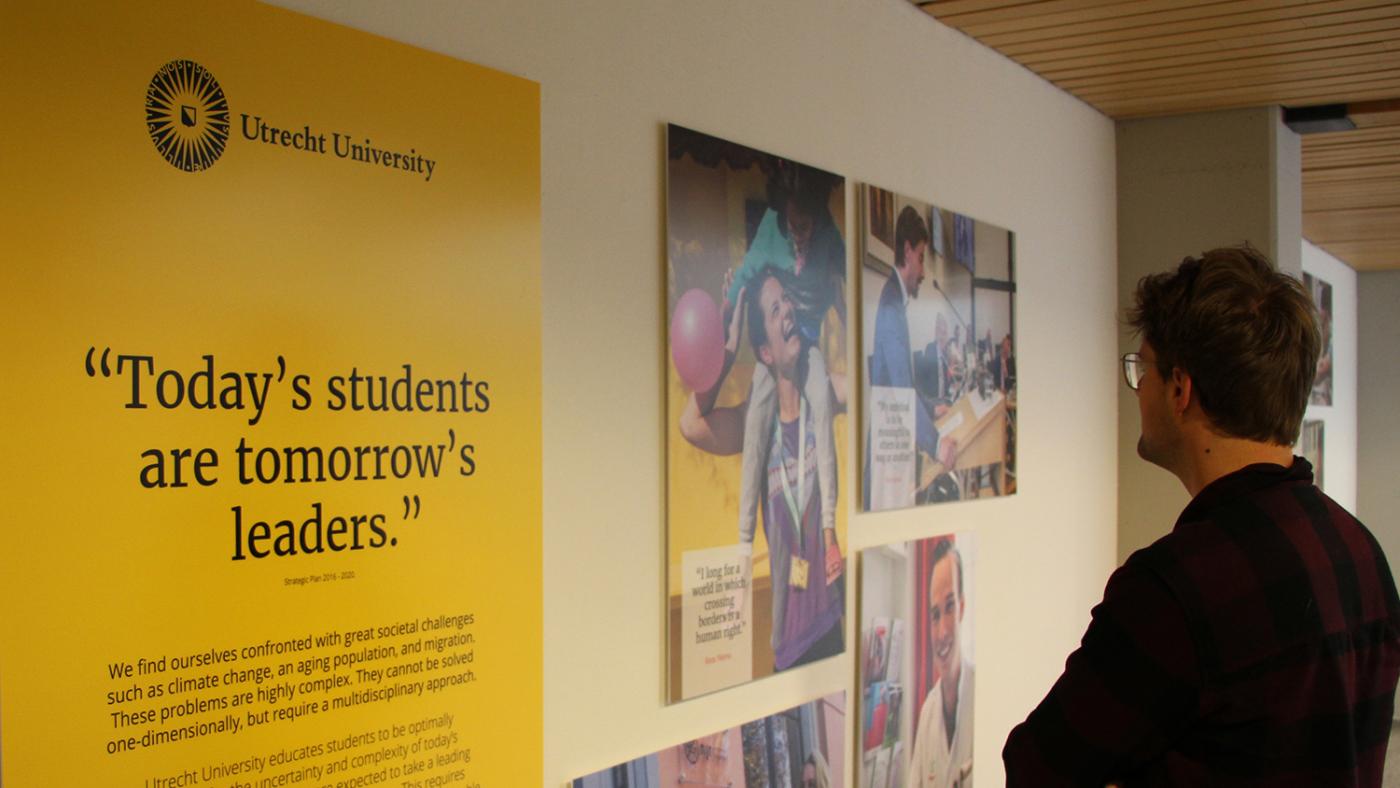Corona leaves its mark on UU’s plans for the future

A tight-knit university community, in which people are closely involved with each other, and where there’s room for sharing knowledge and debating. That’s the core sentence in the concept of the Strategic Plan that the university published online last week. In the next few weeks, all employees and students will be allowed to respond to the university board’s plans. One of the ways this is done is with an online meeting, last Tuesday, September 15. There’s also a digital bulletin board where people can post their responses.
The new Strategic Plan was supposed to have been ready before the summer. In February, the university board presented a ‘charcoal sketch’, in which they included input from six ‘study groups’. The intention was to let all UUers voice their opinions in March – but because of the lockdown, this would only have been possible online. Moreover, the board wanted to incorporate the experiences from the lockdown in the plan. For those reasons, the plan was postponed.
The Strategic Plan presents the goals the university has set for itself for the upcoming years, and the subjects it wants to focus on. The bigger goal the university has is ‘working on a better world’. That is to be done via collaboration, resolving the boundaries between disciplines, and strengthening international relations.
Many of the plans from the original charcoal sketch were re-evaluated in the summer, in light of the corona crisis. In the concept plan, the university writes that the Covid crisis confirms that the UU’s mission is solid as a rock. It’s through collaborating on education and research beyond the borders of disciplines and countries that the university feels it can contribute to an appropriate global response to Covid as well as working on the necessary social, sustainable ‘reset’ instead of a ‘restart’.
At the same time, the corona pandemic does have consequences for the way in which the university can realise its principles.
Core curriculum in education
Corona hasn’t had any consequences on the university’s vision of what type of student it wants to educate. Students who leave the UU with a degree in hand have the knowledge and competencies to contribute to a better world. To do that, students have to learn how to think analytically, and how to connect multiple perspectives. In other words, education focuses less on the discipline the student has chosen, and has explicit room for multidisciplinary education.
One concrete proposal is to establish a core curriculum, in which all students would take the same core courses. These could, for instance, be about philosophy of science, diversity and anti-racism, statistics, academic writing, or sustainability.
It should also be made easier to take courses at the Eindhoven University of Technology and Wageningen University – the universities with which the UU has an alliance.
Workloads and student wellbeing
The plan also focuses on student wellbeing. These past few years, students have been experiencing increased workloads; they’re feeling insecure, and struggle with pressure to perform. The university wants to monitor these issues. Furthermore, there should be more attention for guiding and supervising students, and it should be made easier to switch from one programme to another, in which relevant ECTS can be kept.
Stronger role for strategic themes
In the past few years, there’s already been an increasing focus on multidisciplinary collaboration in research. The role of the four strategic themes (Pathways to Sustainability, Life Sciences, Dynamics of Youth, and Institutions for Open societies) will become larger. Master’s programmes will also connect to these themes more often.
Moreover, emphasis will be placed on open science. The university wants to be a pioneer in quickly making knowledge available to society. It will also invest in international collaboration, through an intensification of collaborations with universities abroad, but also by recruiting talent from other countries.
The university concludes that our scientific culture is dealing with competition gone too far. That culture has to change by placing more emphasis on teamwork. Creating a new way to recognise and assess should lead to lower workloads. The programme Recognising and Assessing is scheduled to be implemented university-wide in 2022.
Young researchers, like PhD candidates and Postdocs, will receive more support. Supervision will be improved, and the young researchers will receive support in finding a different career if a career in science proves to be unfeasible.
Sustainable Development Goals
In the upcoming years, the university wants to prove itself to be an even more sustainable university. That becomes clear by, among other things, supporting the Sustainable Development Goals. The university will introduce attention to the theme in education and research, but also in the university’s operations. The UU’s goal had already been to be carbon-neutral by 2030. It’s now added a goal of increasing the local biodiversity.
Housing will also change. The university will have fewer individual workplaces, but more room for meeting and collaboration. This has to be feasible in times of corona and will take into account the increased number of online meetings. Digitisation will also take off in the upcoming years. For that reason, the digital infrastructure has to be strengthened, so digital application in research and education can improve, leading to – for instance – safer ways to store data.